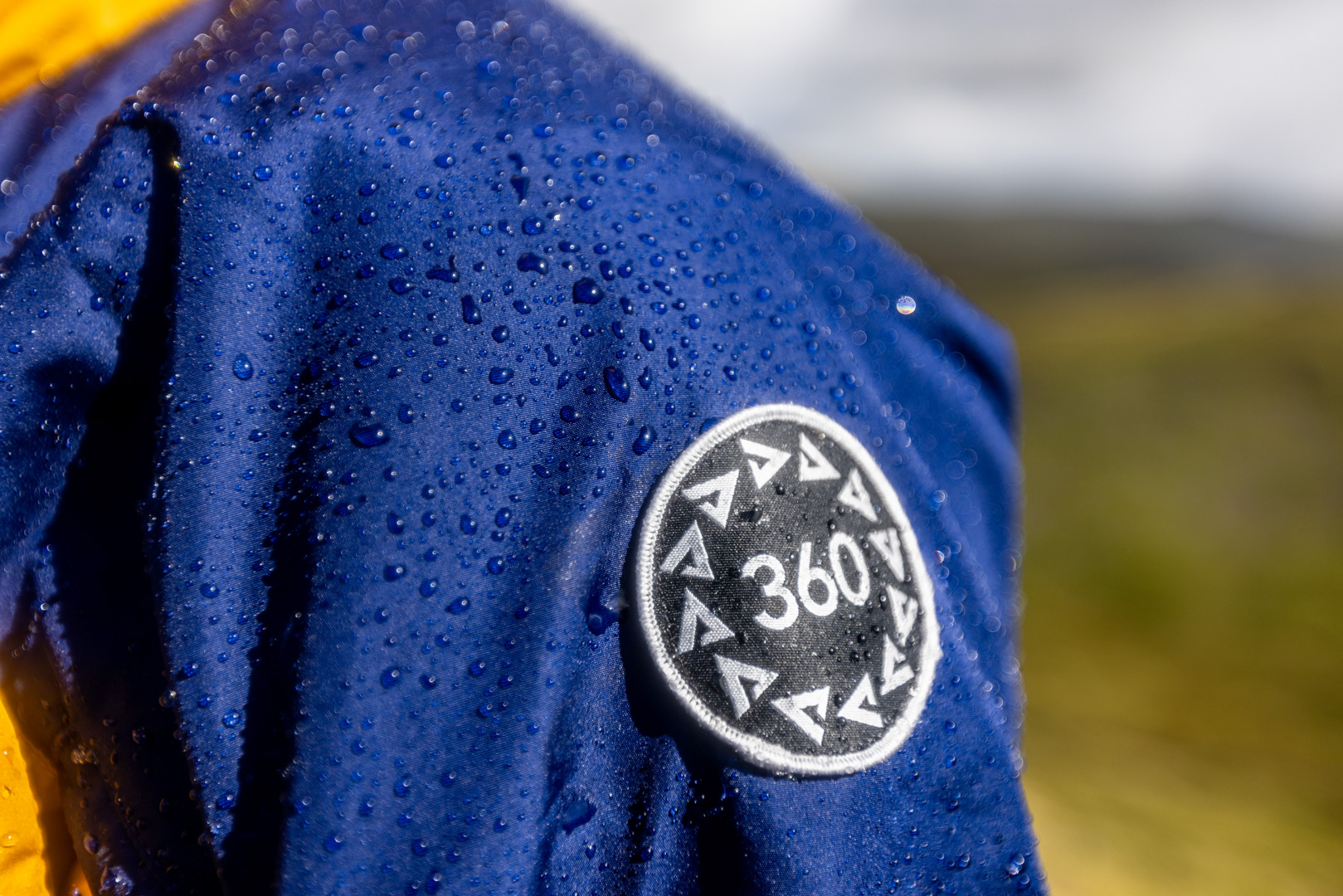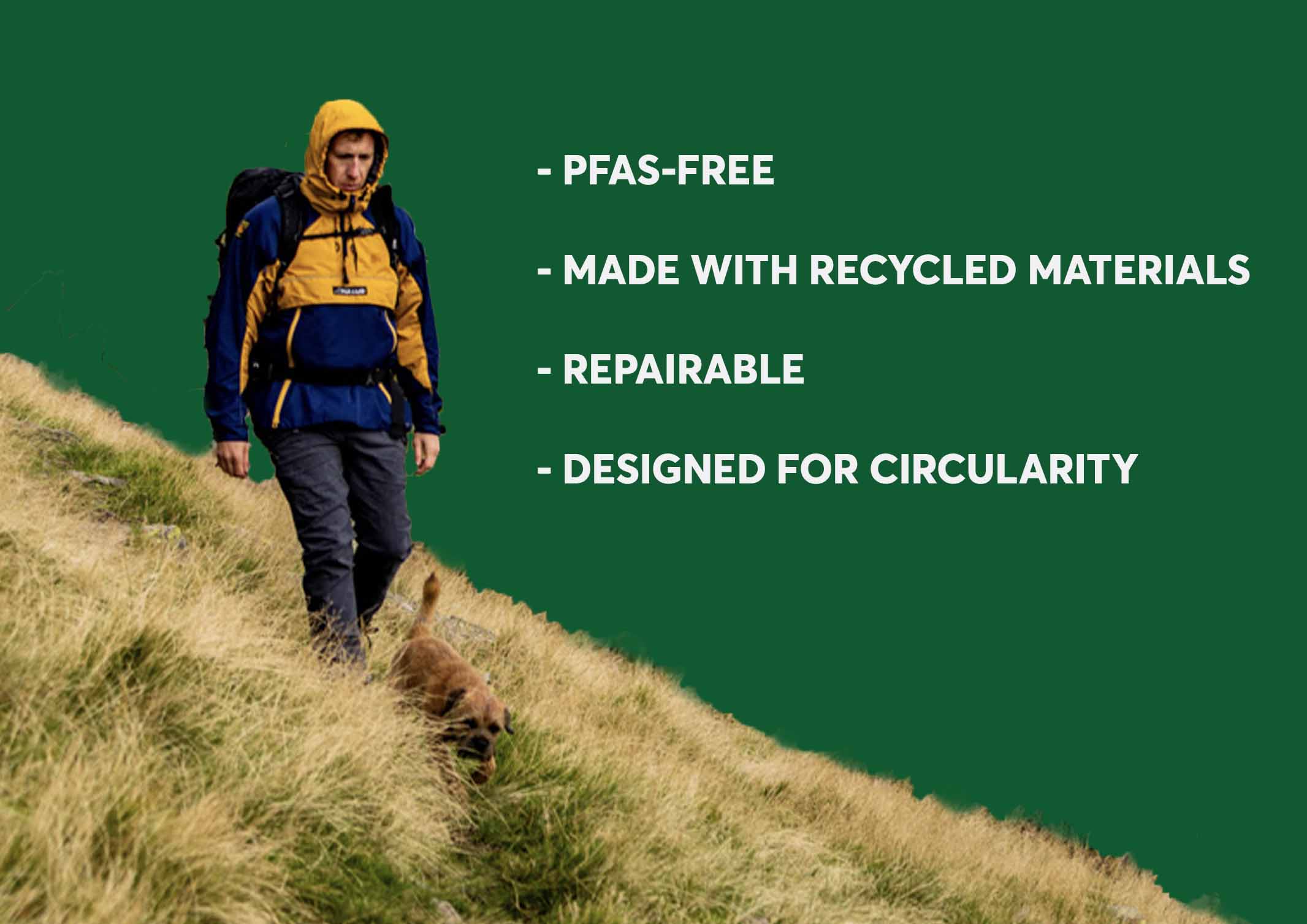Employing textile technology that’s both trailblazing and back-to-basics, combined with a unique and universally-recognised ‘look’, Páramo has been proudly different to other outdoor brands since its inception. By championing a repair, re-use and recycle mentality, the brand has made significant movements towards a circular production methodology over the years. Now, Páramo’s new 360 design concept is elevating the brand’s environmental credentials by building on an existing foundation of sustainable practice.
To demonstrate the 360 concept, Páramo have effectively ‘rebooted’ one of their classic-style smocks, the Aspira, by focusing on carbon-reduction within its construction, performance and even end-of-life options. The Aspira 360° Smock is made with circularity central to its design process, rather than as an afterthought – it’s illustrative of the new concept, but it isn’t just a one-off. Páramo say that the Aspira 360° is paving the way for improved circularity in even more of its range.

The textile industry generates around 92 million tonnes of waste a year and only 10-15% of that is recycled, with the rest ending up in landfill. The ‘fast fashion’ phenomenon is driven by low-cost, low-quality rapid production cycles, which create a wear-and-discard mindset among consumers, exacerbating our chronic textile waste issue – and the outdoor clothing industry is by no means exempt. While Páramo items don’t come cheap compared to some other brands, the price tag is reflective of the intended longevity of the garment and the durability of its construction. This is part one of the 360 model, which also includes keeping that high-quality kit in action for longer. Páramo production techniques do not include glues, laminates, or taped seams, meaning that most simple repairs can be carried out at home with a needle and thread, and more serious damage can be sorted by the experts. Enhanced repairability means that materials used in the garments remain at their highest value for as long as possible.
“Even if it’s a waste product, using a raw material from another industry when ours creates our own waste is not the answer.”
Mindful of their responsibility to preserve Earth’s finite resources, Páramo have operated a trade-in recycling scheme for over a decade now, allowing customers to exchange their old garments for new ones at a discount. The garments are then refurbished and re-sold. When a garment has truly reached the end of its usable life, it is broken down and recycled using pioneering chemical techniques – the next step in the 360 system.
The Páramo evangelists can skip this next part, or stay tuned for a refresher on the tech. You’ll probably have noticed the ‘Analogy®’ tab emblazoning the arm of many of the brand’s most popular styles. Analogy is one of twelve fabric types made for Páramo by Nikwax and comes in two textile variants: Analogy Waterproof and Insulator, as well as a ‘Light’ version of the waterproof fabric. Analogy has an almost silky feel to it from the beginning – it’s a far cry from the crackly stiffness of most brand-new waterproof membranes, and the technology within is vastly different. Analogy has a two-layer construction to trap air, and a Pump Liner. The latter element is so-called because of its ability to pump moisture outwards, mimicking animal fur by drawing rain and perspiration away from insulation. The outer layer comprises a closely-woven microfibre surface which deflects moisture, while allowing for vapour to escape from within the fabric. Nikwax’s ‘Directional Textile’ technologies can be maintained and re-proofed for the duration of their lifetime using Nikwax’s water-based, PFAS (per and polyfluorinated compound)-free products.



